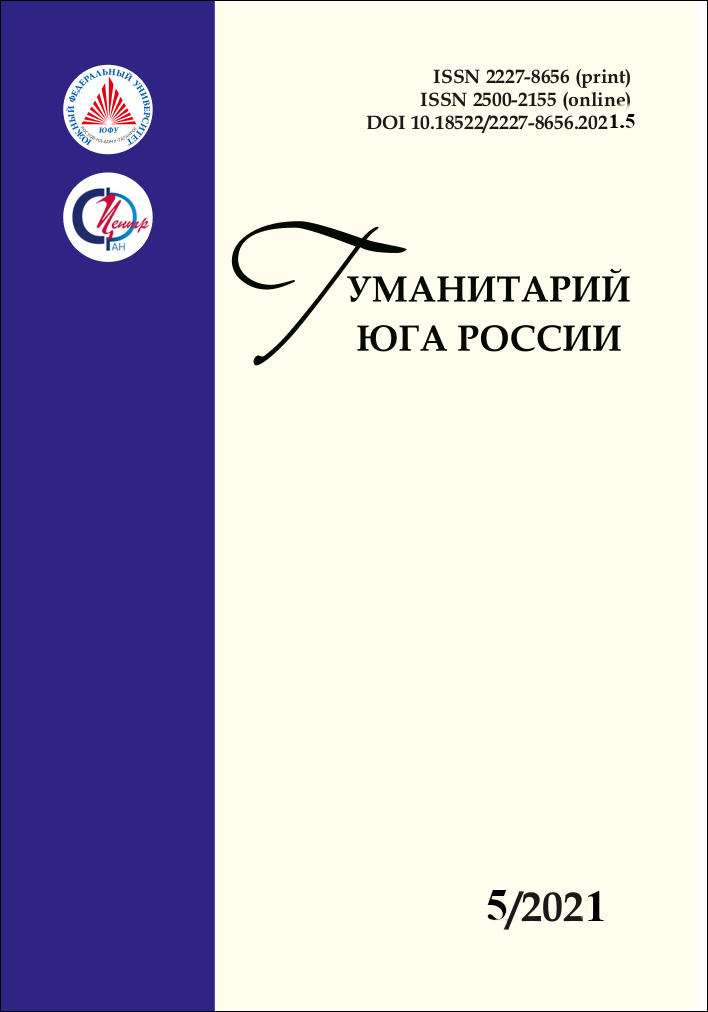Крымская молодежь в условиях первой волны распространения COVID-19: здоровьесберегающие стратегии
Научная статья
Аннотация
Литература
Бариева А.А. Студент XXI века: реалии современной российской действительности // Казанский социально-гуманитарный вестник. 2020. № 6. С. 4–8.
Герасимов М.В. Ценность и доступность массового спорта в координатах жизненного проектирования российской молодежи (на материалах социологического опроса) // Гуманитарий Юга России. 2021. Т. 10, № 2. С. 83–93.
Зубок Ю.А., Чупров В.И., Любутов А.С. Самоорганизация в механизме саморегуляции жизнедеятельности молодежи // Молодежь и молодежная политика: новые смыслы и практики. Серия «Демография. Социология. Экономика». М.: Экон-Информ, 2019. С. 12–25.
Инициативный всероссийский опрос «ВЦИОМ-Спутник» проведен 13 ноября 2019 г. (N=1600). Тема исследования «Россия – спортивная страна!». Режим доступа: https:// wciom.ru/index.php?id=236&uid=10001.
Калинич В.С. Феномен «социального вакуума» в условиях пандемии // Миссия конфессий. 2021. Т. 10, № 1. С. 161–165.
Касьянов В.В., Гафиатулина Н.Х., Васьков М.А. Российское население в условиях режима самоизоляции: анализ депривационного влияния на социальное здоровье // Государственное и муниципальное управление. Ученые записки. 2020. № 2. С. 204–208.
Концевая Н.М. О критерии эффективности карантинных мер в условиях текущей пандемии // Современная математика и концепции инновационного математического образования. 2020. Т. 7, № 1. С. 91–97.
Куликова Н.А., Плетцер С.В., Якуткина И.В. Физическая культура в жизни студенческой молодежи // Наука-2020. 2019. № 4. С. 11–19.
Межман И.Ф., Исупова Е.В., Кононова О.В. Роль физической культуры и спорта в жизни студенческой молодежи России // Успехи гуманитарных наук. 2021. № 9. С. 49–54.
Сидячева Н.В., Зотова Л.Э. Ситуация вынужденной самоизоляции в период пандемии: психологический и академический аспекты // Современные наукоемкие технологии. 2020. № 5. С. 218–225.
Чупров В. И. Саморегуляция жизнедеятельности молодежи в культурном пространстве: концепция социокультурного механизма // Гуманитарий Юга России. 2018. Т. 7, № 4. С. 13–25.
Щербина В.А., Таран В.А. Связь социальной зрелости со здоровым образом жизни студента // Международный научный центр Educatio. 2015. № 3–6. С. 97–99.
Поступила: 03.09.2021
Опубликована: 01.12.2021






